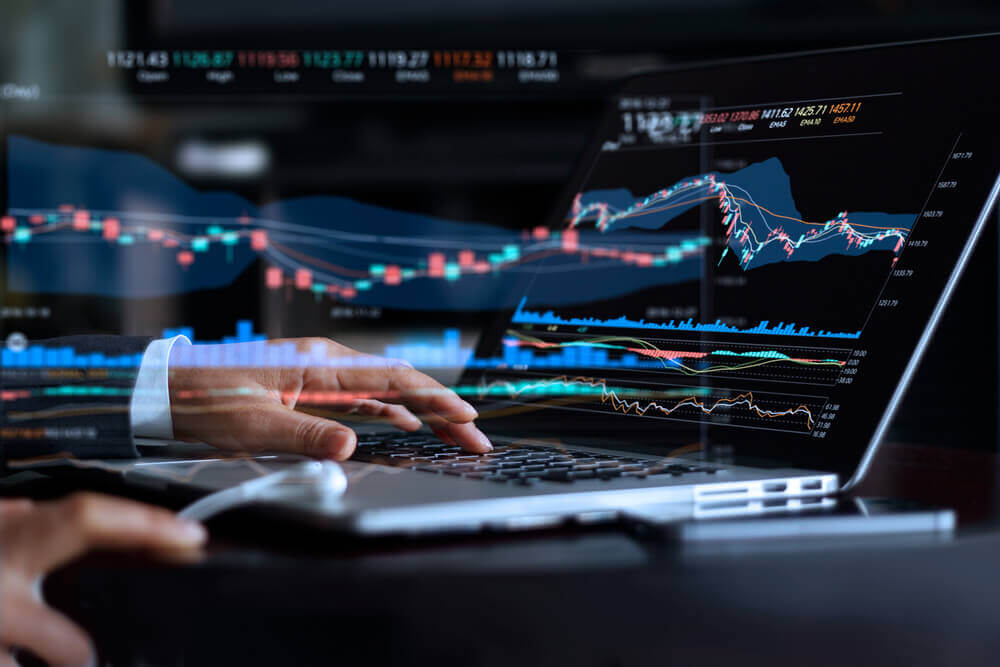
Global stock markets closed mixed
Highlights:
- USA
The Dow Jones fell by 0.78% or 271.66 points, to 34,607.72.
The S&P 500 lost 0.77% or 34.70 points, to 4,458.58.
The Nasdaq dropped by 0.87% or 132.76 points to 15,115.49. - ASIA
The Nikkei advanced by 0.22% or 65.53 points to 30,447.37.
The Kospi closed with an increase of 0.07% or 2.1 points, at 3,127.86.
The Hang Seng shed 1.50% or 392.1 points, to 25,813.81. - EUROPE
The EuroStoxx 50 index advanced by 0.57%. The FTSEurofirst 300 added 0.46%. Meanwhile, the Stoxx 600 gained 0.43%.
Economic uncertainty sent Wall Street to a weekly loss
Uncertainties about the economic recovery in the US dragged down Wall Street. Over the last five sessions, almost all stock market indices were in the red. The Dow Jones cut 2.2%, the S&P 500 shed 1.6%, and the Nasdaq 1.7% last week.
Investors have been concerned about lack of data from the Fed on future actions about tapering.
The Fed is forecast to provide information about its plans at the next monetary policy meeting on September 21. Bear in mind that the European Central Bank stated it would slow down its asset purchase program.
As of Friday, the market seemed ready to rebound at the opening, seduced by the announcement of the US President. Joe Biden toughened the covid-19 vaccine mandate, extending it to all companies with more than 100 employees.
However, the atmosphere quickly became gloomy during the session.
The Dow Jones fell by 0.78% or 271.66 points, to 34,607.72.
The S&P 500 lost 0.77% or 34.70 points, to 4,458.58.
The Nasdaq dropped by 0.87% or 132.76 points to 15,115.49.
The excitement is gradually giving way to caution
The United States registered almost 150,000 new daily cases of covid-19. The complete vaccination rate is stagnant at 53%. This has led the government to force large companies to require immunizations or tests.
Meanwhile, the country’s companies, in addition to lower demand, continue to face supply problems and a labor shortage. In this difficult corporate environment, the producer price index has increased by 8.3% in August, the highest year-on-year rise since 2010.
At the same time, jobless claims, an indicator of layoffs in the US, fell last week to their lowest since the beginning of the pandemic.
With the rebound in cases, plans to return to the offices have been delayed. Also, the share of workers who are not in the workforce has grown.
According to experts, the disappointing August employment figure has affected the market and has produced the worst report since Last January.
The Nikkei closed in the green after the morning losses
At the beginning of the week, the Nikkei average started with a loss and temporarily dropped to 30229.01 yen in the morning. However, due to the strength of the future outlook, there was a bargain purchase at the lower price and the index advanced.
At the end of the session, the Nikkei average was trading with an increase of 65.53 at 30447.37. The closing price was the second-highest this year after February 16.
By industry, steel, petroleum and coal products, and banking had the highest rate of increase. On the other hand, transportation equipment, securities, and air transportation sectors suffered the highest rate of decline.
The Topix added 0.29% or 6.06 points, to 2,097.71.
The fall of Toyota was one of the factors that affected today’s trading session the most. Last week, the company announced a new cut in global production for 2021 due to the coronavirus pandemic and the shortage of chips.
The Softbank group accumulated the largest volume of operations, and its shares slipped by 1.43%. Semiconductor components maker Lasertec and Toyota followed it with the number of transactions. Lasertec shed 1.2%, and Toyota dropped by 1.64%.
As for the multinational technology company Sony, it slipped by a slight 0.04%. Meanwhile, Nintendo, the video game developer, and distributor closed flat.
Kospi closed almost flat
Today, the Kospi closed with an increase of 0.07% or 2.1 points, at 3,127.86.
Institutions and foreigners net bought 25 billion won and 137.4 billion won, respectively, leading to the index’s slight advance.
The Kosdaq technology index fell by 1.11% or 1.57 points, to 1,026.34.
Today’s session was marked by doubts about inflation data in the United States.
The Kospi started the day in the red after North Korea conducted its first strategic cruise missile test. The market lacked clear direction for the rest of the day. For much of the session, the Kospi moved in a narrow range of fewer than 20 points. Mainly, it was due to doubts generated after the US inflation data, with wholesale prices in August registering their biggest increase in 11 years.
Only the last minutes’ purchases of institutional and foreign participants provided a small advance for the Kospi.
Technological Samsung Electronics, the biggest asset on the Seoul Stock Exchange, gained 1.33%. Meanwhile, SK Hynix, the second-largest global memory chip maker, added 1.43%.
Meanwhile, Navar fell by 0.49%. Kakao yielded 4.23% after the Government promised to tighten regulations on the online services sector.
In the biopharmaceutical sector, Samsung Biologics slid by 1.3%, and its competitor Celltrion lost 2.06%.
Hyundai Motor, South Korea’s largest vehicle manufacturer, closed with a loss of 0.73%.
Fall in the Tech stocks weighed on the Hang Seng
 The Hong Kong Stock exchange slipped today because of the drop in technology stocks.
The Hong Kong Stock exchange slipped today because of the drop in technology stocks.
The Hang Seng shed 1.50% or 392.1 points, to 25,813.81. Meanwhile,
the Hang Seng China Enterprises declined by 1.58%.
Yesterday, the Ministry of Industry of China asked digital giants to stop blocking each other’s website links from their platforms. As a result, Alibaba shed 4.22%, Meituan plunged by 4.47%, and Tencent lost 2.44%.
The casino operator Sands China was the biggest loser of the day, shrinking by 5.46%. The real estate company Galaxy Entertainment followed it with a decline of 5.12%. At the same time, Ali Health plunged by 4.82%.
The state oil companies were the greatest winners of the day.
Sinopec advanced by 2.34%, CNOOC added 2.72%, and Petrochina climbed by 4,98%.
Meanwhile, all the sub-indices closed in the negative territory. Commerce and Industry dipped by 2.49%, Finance yielded 0.24%, Real Estate shed 0.72%, and Services slid by 0.16%.
Chinese telemarketers had a mixed trading session. China Mobile climbed by 0.20%, and China Unicom fell by 0.95%.
The business volume of the session amounted to 150,340 million Hong Kong dollars.
Europe on the rise
Major European stock markets opened with rises on Monday. They got support from the rise in Wall Street futures, even though the Asian session was moved by fears about the tech sector.
The EuroStoxx 50 index advanced by 0.57%. The FTSEurofirst 300 added 0.46%. Meanwhile, the Stoxx 600 gained 0.43%.
The rise in the oil and gas sector notably supported the positive trend on the European stock market. In the wake of rising crude oil prices, the Stoxx 600 index expanded by 1.2%.
-
Support
-
Platform
-
Spread
-
Trading Instrument




